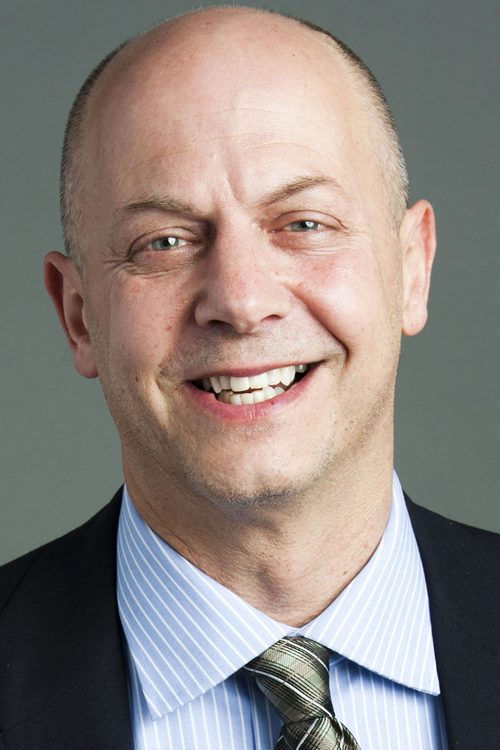09/05/2014

Following Paradigm Outcomes’ Webinar on August 20, 2014, Dr. Steven Moskowitz, Senior Medical Director and Supervisor of Paradigm’s complex pain program, took to the Workers’ Compensation Catastrophic and Pain Medical Management LinkedIn Group to answer questions from webinar attendees.
During the live, 1-hour Q&A session, Dr. Moskowitz fielded an array of questions surrounding opioid and non-opioid treatments for chronic pain. We have included the questions and answers below to help you address similar issues with your complex claims. The discussion thread is still open, so if you have a question that you would like to be addressed, simply post a comment here.
Q1: I am wondering if you have a recommended approach to deal with prescriptions of Nuvigil to counteract the effects of opioid medications or sleep meds- in states that do not allow physician advisor review, can you recommend an approach to address?
Steven Moskowitz, MD (SM): My first question regarding Nuvigil to counteract the effects of opioids is that now we’re entering into the slippery slope of polypharmacy, with the Nuvigil treating the side effect of the opioids. I would first raise the issue of how beneficial is the opioid itself, is there risk of opioid-induced hyperalgesia, and is the dosing below the ODG guidelines of 120 Morphine Equivalency per day (more recently recommendations are to stay below 50 MEQ). Nuvigil should always go through U.R., and if physician review is not available, consider pharmacy review or else engage case management to discuss concerns about polypharmacy with the doctor. Nuvigil is as a stimulant. It has abuse potential.
Q2: What is your opinion regarding acupuncture for lumbar disc herniation causing radicular symptoms?
SM: Acupuncture can be very helpful to address symptoms of low back and radicular pain. As long as the disc is less than 8 mm, and the patient is not having surgery, a course of 12 sessions can be prescribed. If the patient has not responded by the fifth session, you may discontinue. The important strategy is that it must be managed in the context of the greater rehabilitation plan such as therapeutic exercise, medication management, and outcome measurement. Otherwise it may fall into the abyss of a failed quick fix.
Q3: Nexium over the counter versus prescription significant change in price any difference in meds to preclude OTC?
SM: Nexium is an NSAID (non-steroidal anti-inflammatory drug). Over the counter (OTC) versions, as well as Prilosec OTC, are generic equivalents that are typically at slightly lower doses than the prescription drug, but are the same chemical. As long as the patient does not have an allergy to any of the inactive ingredients in the generic formulation, they can consider the OTC. They may need to take two pills instead of one to get the same dosing.
Q4: Are herbal medications safer for use than prescription medications?
SM: Not necessarily. Per an article in Medscape (“Safety Issues with Herbal Medicine”), “all medicinal agents have potentially unexpected effects including toxicity, and herbals are no different. As with other drugs, the risk of unexpected effects may be influenced by a user’s age, gender, genetics, nutrition status, and concurrent disease states and treatments. Unexpected effects of herbal medicines may be classified as intrinsic or extrinsic to the compound.” Intrinsic problems have to do with the chemistry of the herb (often multiple active substances) and potential effectiveness and side effects. Extrinsic problems relate to “Extrinsic effects result from misidentification of the plant; lack of standardization; impurities through contamination, substitution, or adulteration; incorrect preparation or dosage; and inappropriate labeling.”
There is no guaranteed quality and safety control for herbal products, though there are some organizations working toward that, such as the American Botanical Council. I will never forget a photo shown at an herbal medicine course I took where a person was standing in a vat of herbs, barefoot, in some sort of jungle.
Q5: If compound meds are basically ineffective, why is it so many doctors continue to give out or prescribe it?
SM: I would not say that they are not ever effective, but rather they need to be used judiciously for a specified period of time for specific types of neuropathic conditions with a measurable outcome in mind. We know the Flector patch has some proven effectiveness for superficial musculoskeletal conditions, but we also know that there can be major side effects including liver failure. This brings up an important point: topical medications can be and are absorbed. Thus the assumption that they are safe since they are just topical is not correct.
I do have a significant concern about creams that have 4, 5, 6 or more medications in one cream. Some of the agents have not proven to be effective. Some have known risks like using topical corticosteroids chronically. So, slapping on a cream because it’s easy is not responsible. It needs to be safe, effective and cost-effective. The “everything but the kitchen sink” is not a good medical approach. Otherwise, there are plenty of OTC alternatives. Effectiveness can be assessed by improvements in level of function or reductions in pain ratings of at least 3 points on a scale of 0-10 and decreased oral pain medication usage.
For more information on managing pain, and appropriately prescribing pain medication within the context of a rehabilitation plan, follow Paradigm Outcomes on LinkedIn, Twitter, and Facebook. You can also visit our website to listen to replays and download the slides for parts 1 and 2 of this webinar series. If you have more questions about the “Not Just Opioids” webinar, ask your question in the LinkedIn Discussion, and we will follow up with an answer.
 Steven M. Moskowitz, MD, is the Senior Medical Director and supervisor of Paradigm Outcome’s complex pain program. Dr. Moskowitz is a specialist in physical medicine and rehabilitation with clinical expertise in complex musculoskeletal and neurologic rehabilitation including spinal cord injury, multiple sclerosis and chronic pain.
Steven M. Moskowitz, MD, is the Senior Medical Director and supervisor of Paradigm Outcome’s complex pain program. Dr. Moskowitz is a specialist in physical medicine and rehabilitation with clinical expertise in complex musculoskeletal and neurologic rehabilitation including spinal cord injury, multiple sclerosis and chronic pain.